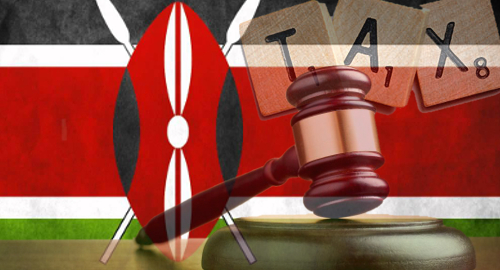 Kenya’s betting operators will have to face their new 35% tax obligations after a court dismissed a challenge of the government’s tax hike.
Kenya’s betting operators will have to face their new 35% tax obligations after a court dismissed a challenge of the government’s tax hike.
Kenya’s government approved a new uniform 35% tax on all gambling products this summer, despite protests from operators that the new rate made their businesses unviable. The new rate, which kicks in on January 1, 2018, marks a significant rise over the existing rates, which for betting operators had been a mere 7.5%.
In October, the Pambazuka National Lottery filed a lawsuit alleging that the tax hike was unconstitutional., given that parliament approved the hike as an item in the national budget, rather than subjecting standalone legislation to greater public scrutiny.
The suit also accused President Uhuru Kenyatta of exceeding his authority in signing the legislation, and argued that the tax imposed an unreasonable and excessive burden on the industry.
On Thursday, Kenya’s High Court rejected the challenge, saying it was within the National Assembly’s authority to approve the budget without the Senate’s involvement. The Court similarly ruled that Kenyatta had acted according to the law and that the challengers had failed to prove that the new tax lacks a public purpose.
The government justified its tax hike as a means to deter youth from getting involved in gambling. Kenyan-licensed operators countered that the new tax will ultimately be passed onto bettors, who will then transfer their betting activity to internationally licensed betting operators, thereby decreasing the government’s share of betting revenue and eliminating the government’s ability to oversee betting activity.
Justice John Mativo described taxation as “a way of apportioning the cost of government among those who in some measure are privileged to enjoy its benefits hence must bear its burdens … its imposition does not necessarily infringe on the citizens’ rights unless it is demonstrated to be outrightly arbitrary and unconstitutional.”
The Court also chided the appellants for failing to disclose that the law was the subject of a separate challenge. SportPesa filed the first lawsuit against the law in October, one week before the PNL suit.
While the suits were later consolidated into a single proceeding, Mativo claimed the “multiplicity of actions on the same matter between the same parties” was “regarded as an abuse,” since the parties “had a duty to bring such information to the court so as to help it avoid rendering conflicting decisions on the same subject.”
SportPesa is Kenya’s leading betting operator and a major financial supporter of local sports teams and associations. The company previously warned that it would be compelled to significantly reduce its sponsorship budget if the new tax was imposed. SportPesa also threatened to scrap its entire Kenyan operations if the tax went through, although it later walked back these threats. The company has yet to publicly comment on the ruling.